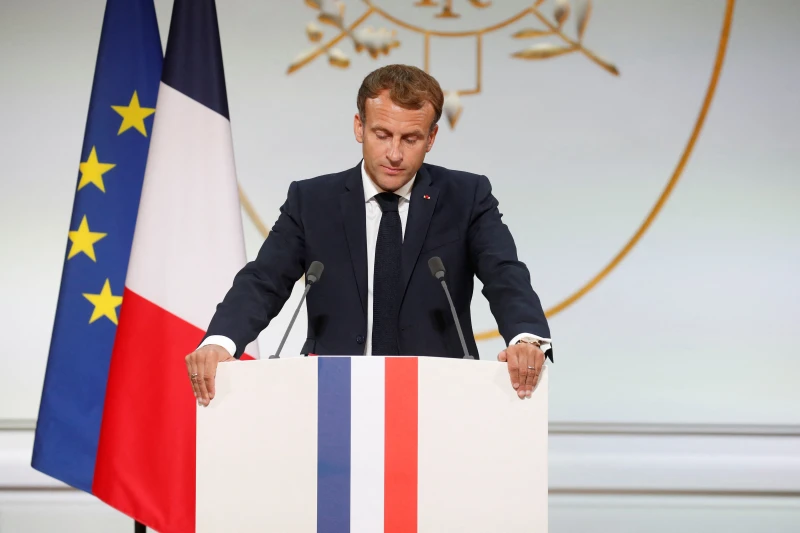The president stated to a crowd of 10,000 people that New Caledonia is part of France due to its own deliberate choice to maintain its French affiliation.
Emmanuel Macron emphatically asserted France’s sovereignty over New Caledonia during a speech in Nouméa, where around 10,000 people gathered. He criticized the pro-independence movement for avoiding dialogue and presented Caledonians with two options: “forgiveness” and “the future.”
Acknowledging the aspirations of those who sought independence, he pointed out that the three referendums in 2018, 2020, and 2021 had all yielded “no” votes to secession. Hence, he urged them to embrace a “new project” focused on a continued relationship of “New Caledonia in the Republic.”
In front of a predominantly pro-French audience, he proclaimed a resolute commitment to the chosen path, encouraging progress without hesitation or faltering. The main pro-independence party, Union Calédonienne (UC), had urged its supporters to boycott the event, leading to a noticeable absence of their flags in the crowd, which was largely adorned with the French tricolor.
Earlier that day, the political representatives of Union Calédonienne (UC) declined to participate in a meeting with Macron, where he had hoped they would acknowledge their significant responsibility in achieving a consensus on constitutional reform.
Expressing his personal disappointment with their absence, Macron cautioned against the allure of embracing separatism, emphasizing that such a path could potentially lead to violence, putting the cherished treasure of peace at risk, either now or in the future.
The potential dangers of a rupture or separation.
During his initial visit to New Caledonia in 2018, just before the series of three referendums mandated by the 1998 Nouméa Accord, Emmanuel Macron encountered opposition from the pro-independence members of the Front de Libération National Kanak Socialiste (FLNKS). They contested the final referendum, which they had boycotted, leading to a deadlock in negotiations concerning the constitutional status of New Caledonia.
Macron urged all parties to demonstrate magnanimity and accept the outcomes of the referendums. He also issued a straightforward warning, highlighting that choosing independence could potentially result in the Pacific archipelago falling under China’s expanding influence in the region. He criticized the notion that true independence would involve having a Chinese military base in New Caledonia, arguing that such a scenario would not be genuine sovereignty. He pointed to examples of other countries in the region that had compromised their sovereignty by aligning too closely with external powers.
This statement came in response to criticism from the Union Calédonienne, which accused the French President of using New Caledonia to further his Asia-Pacific strategy of balancing relations between China and the United States.
The path ahead or the way to progress
To move forward, Macron is presenting two interconnected approaches, symbolized by “forgiveness” and “the future.”
The first path aims to address the expectations of the Kanak community regarding remembrance without implying a sense of repentance. Instead, it encourages confronting the past together, acknowledging the enduring historical suffering, especially among the Kanak people.
The second path emphasizes the necessity of establishing durable, revitalized, and efficient institutions. Macron expressed his hope for a constitutional revision, as outlined in the Nouméa Accord, to take place in early 2024. He urged political leaders to swiftly reach a consensus to reactivate the region’s electoral body.
To demonstrate the tangible nature of this “path for the future,” the President pledged to foster an “economic revival,” with particular attention to ensuring the profitability of New Caledonia’s crucial nickel production sector. Additionally, he mentioned plans for state funding to overhaul the energy sector, with the goal of providing competitive and environmentally friendly electricity.

